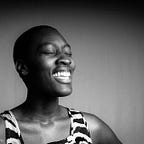The Future of Death and Dying
It’s the question we hear all the time: what comes next? We explore our community’s hopes for the future of end-of-life care.
Now that the Challenge is over, where are we headed? We asked for people’s hopes for the future of death and dying. They shared dreams about cities, memories, language, bodies, education, and fear. Sink into their responses — and share your own thoughts in the comments.
What are your hopes for the future of death and dying?
My hope is that we’ll change that question! I believe that we can create a full circle. Birth is the right place to recreate death, if that makes sense. The fact that we have to talk about it in terms of death, means that we just waited too long to get going about it. And so my hope for end of life is that we don’t have to talk about it in terms of the fear of mortality. That it comes in the context of feeling like birth, where we can engage in the real cycle of life.
— Chris
Well… I always make decisions about keeping memories intact, right? So my hope for the future of death and dying is that individuals are heard. That they can have their goals of care and end of life wishes explored meaningfully, documented, and then honored. That’s really my dream: to make sure that fewer people come in contact with a poor, broken medical system, and that more people get a better death.
— Torrie
I think at the heart of it, my hope is that we can bring the experience of death and dying back into life. And that way people who are dying — the people who go through it with them, who are left behind — aren’t also isolated. When you say the word “died,” people don’t like it, right? I say ‘pass away’ often: not because those are my religious beliefs, but because it’s easier for other people. I’d like to take that burden away.
Bad things happen in life. Death happens. It’s painful and it’s hard; it’s stressful, and it’s scary. That’s just part of being human. But there are layers on top of that: of financial stress, job stress, confusion and anxiety. Those are things we actually can do something about; they’re part of what we as a society can attack. And I’d love to see us do everything we could to eradicate those parts of the pain.
— Jim
My main hope would be that we can all embrace the concept of fearlessness — especially in western society, because we’re so good at holding death at arm’s length, or denying it, or running away from it. If we all realized, entirely and completely, that we’re all going to die. That everybody we love, everyone around us: nobody is excluded from that.
If we could all reflect on that, and not be scared of it… the richness and the intensity in the way that we live could be just tremendous. It could be a very powerful, beautiful, profound experience. It doesn’t have to be scary. And so my wish would just be that we could talk about it with each other, and live more fully with that knowing.
— Morgan
The real key for me is people living fully — until they don’t. And for medicine to get out of the way of that. We spend a lot of time interrupting people’s lives, instead of enhancing and supporting them, on their terms. A lot of time getting in the way of precious time, rather than reclaiming what we actually know.
We know how to give birth. We know how to feed ourselves. And we know how to die. Medicine has diminished the relevance, and the beauty, of some of the rituals of cultures that know how to honor and celebrate this circle of life. And I think it’s time to reclaim our humanity.
— Dawn
Read more stories about the people, ideas, and moments of OpenIDEO’s End of Life Challenge.
